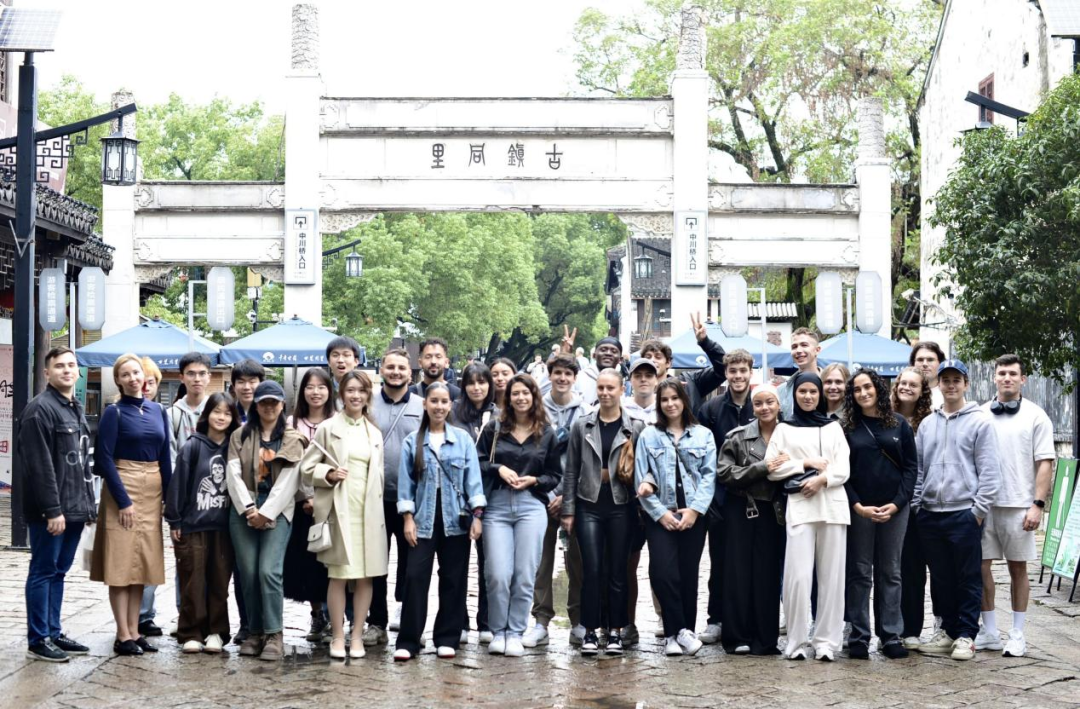Over 30 students from Yuanjian College, Renmin University of China (RUC) conducted research in Tongli on October 13. The research group consisted of undergraduate representatives from the Sino-French Institute, graduate representatives from the International College, French exchange students, and international students from the Silk Road School.
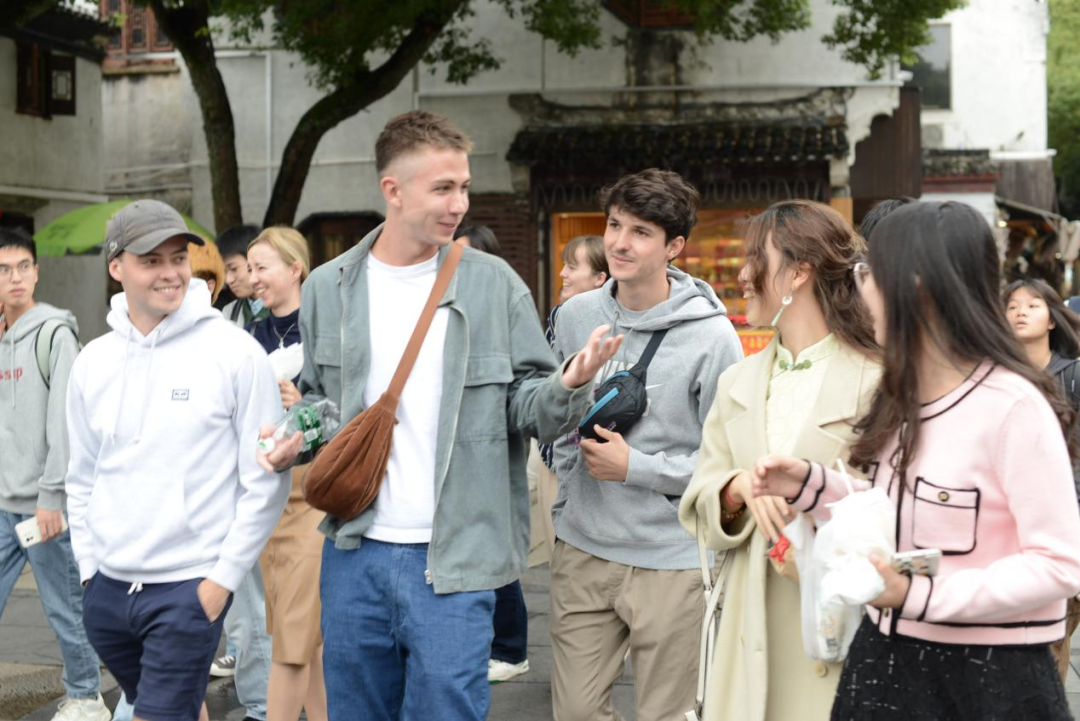
Tongli is an ancient town located on the outskirts of Suzhou, Jiangsu Province. Its history can be traced back to five or six thousand years ago. Back then, Tongli’s exceptional natural conditions made it the richest place in the Wu Region. Hence, Tongli’s original name was “Futu”, meaning “fertile land”.
In Tongli, there are “three abundances”. First, it is abundant in rivers and bridges. The research group took a ride on the unique rowboats of Tongli, sailing slowly through the water lanes flanked by traditional houses.

The group also visited the Taihu Water Conservancy Exhibition Hall and explored the ancient streets and alleys of Tongli, learning the profound history within.
Raffin Diane, a French exchange student, marveled at the beauty of Tongli. “The small bridges, flowing waters, and the ancient architecture here makes me feel that I’m in a vivid ink painting,” he said. “As I walk on the cobblestone streets, I can almost hear its history speaking to me. You can feel the charisma of traditional Chinese culture in this town.”
Raffin also came across various handicrafts, such as wooden carvings, paper-cut art and embroidery. The exquisite embroidery, which Tongli is most famous for, fascinated him with its beauty.
“I love it here, and I hope to take back what I’ve seen, heard and felt back to my hometown,” Raffin said. “I want my friends and family back home to understand China, and I hope they have the opportunity to come to China to appreciate its beautiful scenery and experience its culture.”
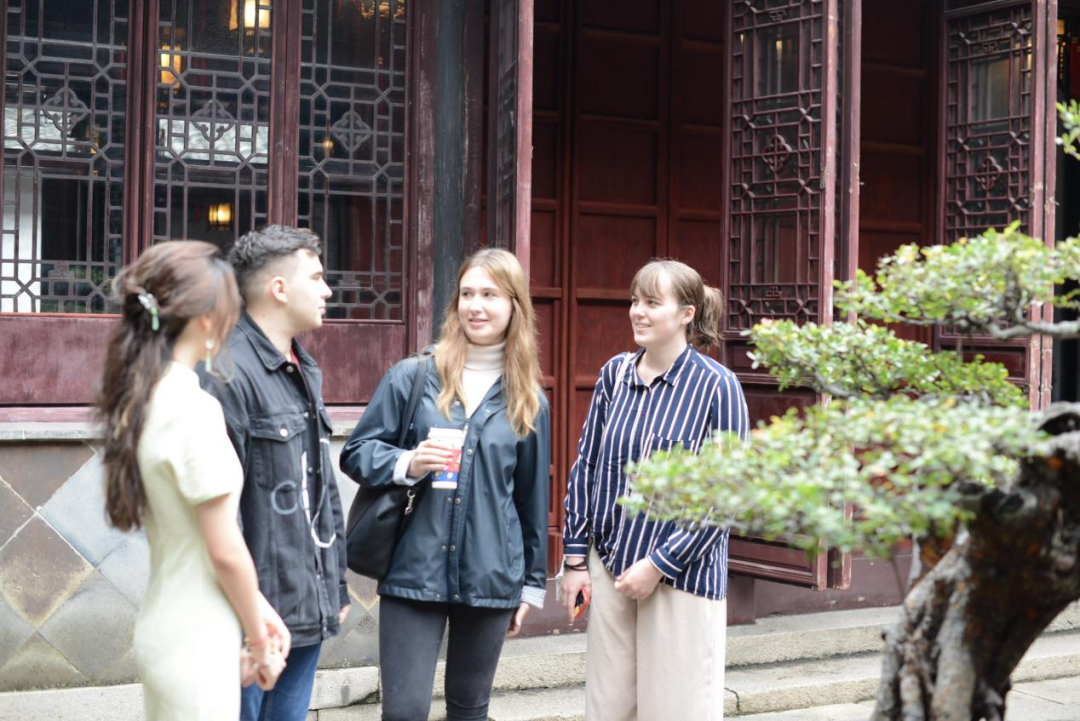
The second abundance in Tongli refers to the abundance of traditional gardens. Tongli preserves a large number of Ming and Qing dynasty residential buildings, which represent the essence of ancient architecture in Jiangnan (regions south of the Yangtze River). The design of these ancient houses embodies the philosophy of “harmony” in Chinese culture, influenced by Confucianism, Buddhism, and Taoism.
The research group ventured into classical gardens and ancient architectural complexes such as Gengle Hall (“Happy Ploughing” Hall) and Tuisi Garden (“Withdraw and Reflect” Garden), appreciating the history and aesthetics of garden designs.
When they entered Tuisi Garden, group members were captivated by the unique charm of this private Jiangnan garden. They strolled along the green stone paths, passed through courtyards adorned with weeping willows, and savored every plant and architectural detail in the garden.
The research group gained a deep understanding of the architectural styles and design philosophies of traditional gardens. They discussed the differences between Jiangnan gardens and northern imperial gardens and further comprehended the philosophy of “harmony” deeply embedded in Chinese garden design and the culture behind Jiangnan water towns.
Meanwhile, group members also engaged in conversations with residents and tourists, sharing their understanding and feelings about Tuisi Garden. They documented these precious experiences through writing, photos, and videos, aiming to spread the culture and charm of Jiangnan water towns to a broader audience.
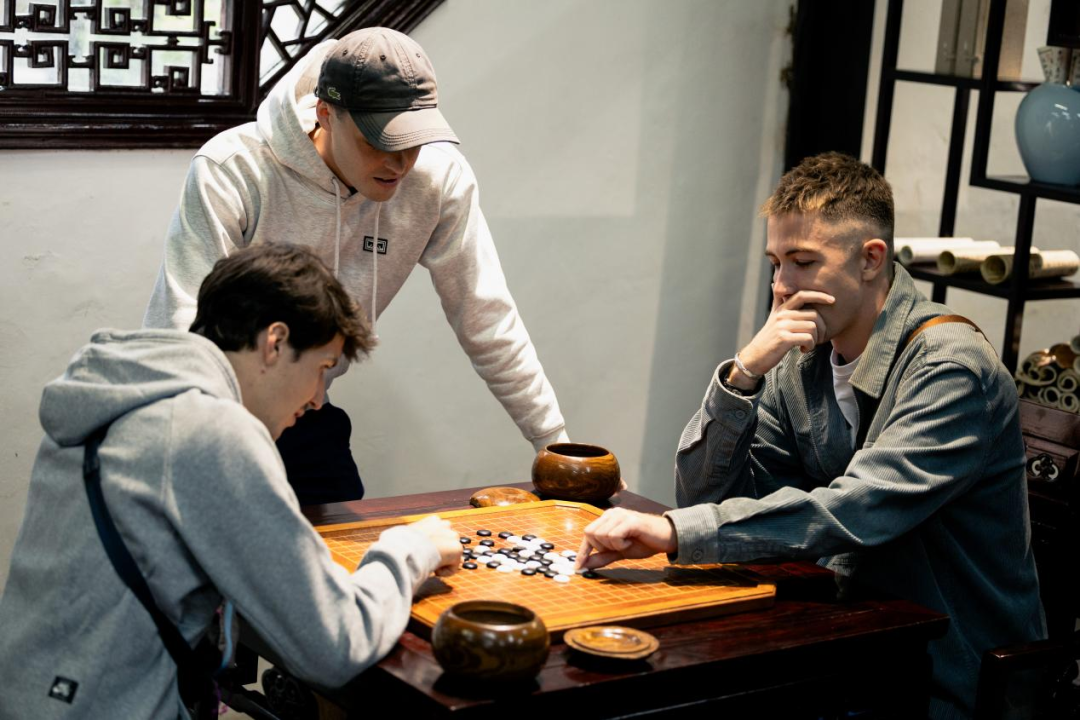
Eganova Anastasia, an international student from the Silk Road School, introduced Gengle Hall and Tuisi Garden to her family in a video. She explained that “Gengle” was the courtesy name of Zhu Xiang, a Ming dynasty hermit who built the hall. “Tuisi”, on the other hand, came from the Chinese phrase “Tui Si Bu Guo”, which means to retreat and reflect one’s error. The garden was built by a Qing dynasty official called Ren Lansheng, who came back to his hometown Suzhou after losing his office.
“This architectural style is something I have never seen before, and I never thought that in ancient China, when there weren’t any modern tools, such exquisite and exceptional buildings could be constructed,” she said. “I believe that Chinese people are truly ingenious, and there is so much we can learn from them. I love this place!”
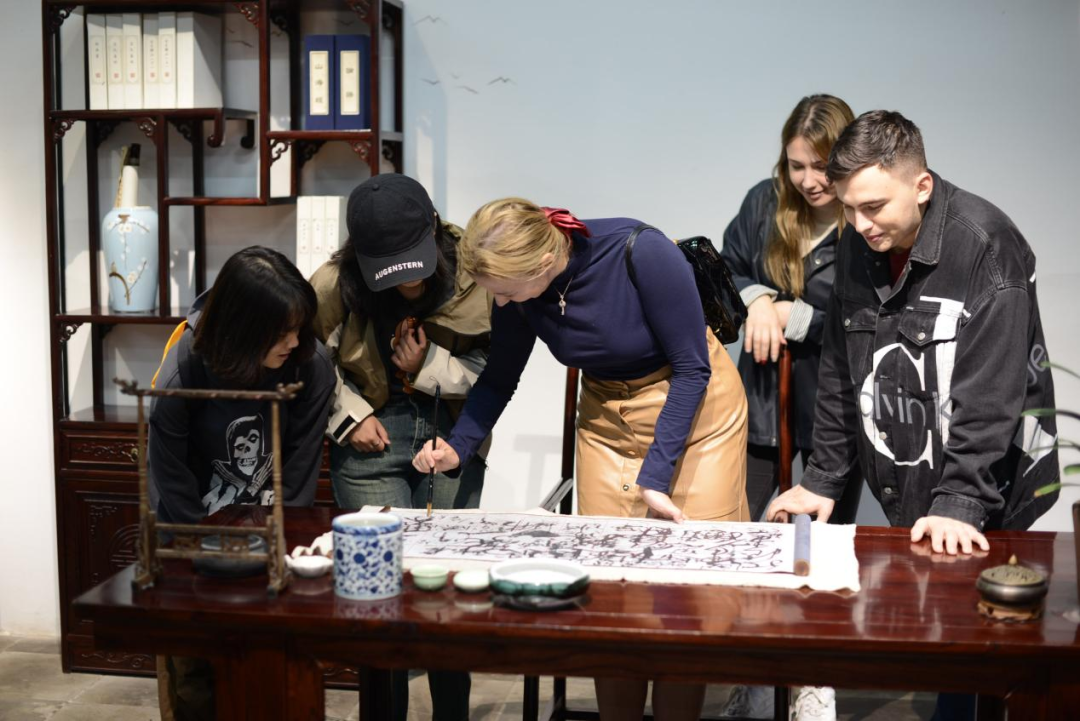
Finally, Tongli is abundant in celebrities. The town of Tongli has produced many eminent individuals, often referred to as “Confucian scholars and gentry” in archives. The research group visited the Wang Shao’ao Memorial Hall and Chen Qubing’s former residence. Learning the lifetime stories of these historical figures, students gained a deeper understanding of cultural values such as peace, development, fairness, and justice.
At the Wang Shao’ao Memorial Hall, the research group gained a detailed understanding of Wang’s life and achievements. Wang was an outstanding politician, thinker, educator, and patriot at the end of the Ming and the beginning of the Qing Dynasty. He advocated for national prosperity, national rejuvenation, and educational reform, significantly influencing China’s political system and social ethos. The international students deeply admired his visionary insights and noble qualities.
Following that, the group visited Chen Qubing’s former residence. Chen was a famous poet, painter, and calligrapher during the same period. His artistic achievements had a profound impact on Chinese culture. The group appreciated Chen’s artistic works and were in awe of his profound cultural heritage and unique artistic style.
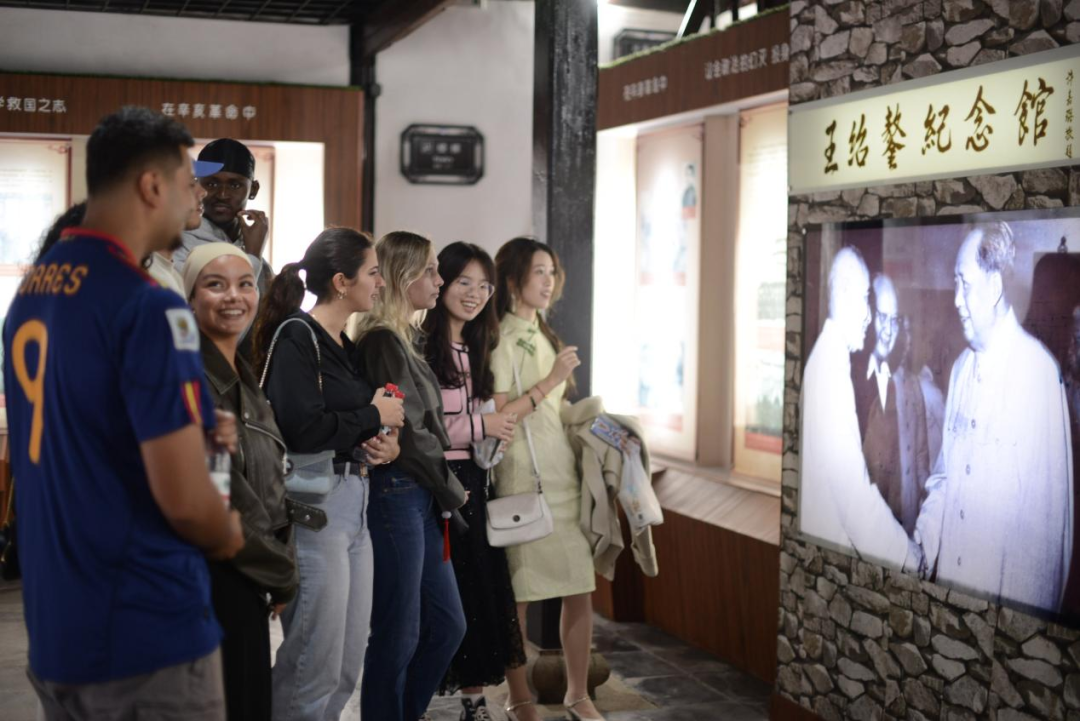
Qiu Zhenghao, a student from the Sino-French Institute said that Chen Qubing’s work made him understand the diversity of Chinese culture, as well as the pursuit of ancient Chinese sages. “This is very helpful not only for our growth but also for cross-cultural communication,” he said.
Tongli has weathered thousands of years of
storms, but its unique culture and historical heritage remain evergreen, attracting
Chinese and international students. Since civilizations are enriched by
exchanges and mutual learning, Tongli serves as the perfect “living textbook”
for people worldwide to learn about traditional Chinese culture.
